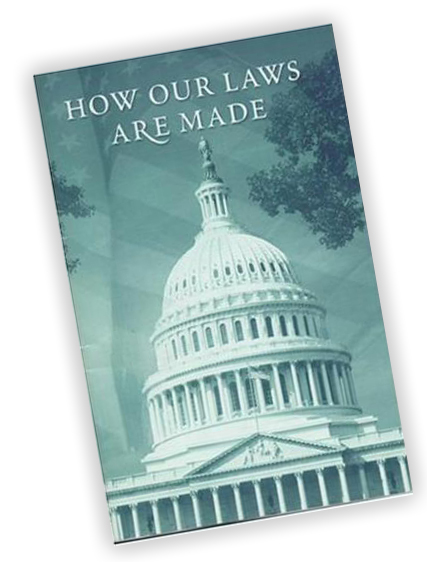We post news and comment on federal criminal justice issues, focused primarily on trial and post-conviction matters, legislative initiatives, and sentencing issues.

HOW (AND WHY) OUR LAWS ARE MADE
 Remember government class in high school? Not so much, huh? Back to school time, boys and girls… Here’s a real-life example of how legislation is written:
Remember government class in high school? Not so much, huh? Back to school time, boys and girls… Here’s a real-life example of how legislation is written:
In 2010, Congress passed the Fair Sentencing Act, reducing the 100-1 ratio of crack to powder cocaine to 18-1. Under the old regime, a defendant with 1 gram of crack cocaine was deemed to have 100 grams of powder cocaine. Because sentences vary in proportion to the amount of controlled substance possessed, a defendant (almost always black) with a slight amount of crack was punished much more severely than a defendant (usually white) with a slight amount of powder coke.
The FSA as proposed would have eliminated the disparity altogether, so that the mandatory minimum for a kilo of powder was the same for a kilo of crack. The House passed the bill with a 100-1 ration reduced to 1-1. But when the bill finally passed the Senate, 1-1 has mystically become 18-1. No one could figure out where the 18-1 ratio came from. Careful deliberation? Scientific studies?
 “We could find no objective proof that crack cocaine was in fact more dangerous than powder cocaine,” said Sen. Richard Durbin (D-Illinois), sponsor of the Senate version of the bill, explaining the rationale behind the original draft. But then-Sen. Jefferson Beauregard Sessions III (R-Alabama) was opposed to changing the ratio at all, believing that the crime rate was falling because more people were being locked away for a long time (as well as thoroughly enjoying the prospect of those dangerous black criminals from the hood being warehoused in federal prisons for decades on end).
“We could find no objective proof that crack cocaine was in fact more dangerous than powder cocaine,” said Sen. Richard Durbin (D-Illinois), sponsor of the Senate version of the bill, explaining the rationale behind the original draft. But then-Sen. Jefferson Beauregard Sessions III (R-Alabama) was opposed to changing the ratio at all, believing that the crime rate was falling because more people were being locked away for a long time (as well as thoroughly enjoying the prospect of those dangerous black criminals from the hood being warehoused in federal prisons for decades on end).
The day the bill was to come up for a committee vote, Durbin ran into Sessions at the Senate gym. Durbin recounted, “I said to Jeff, “come on, Jeff. We can’t just stop the conversation and see this bill die in committee.” said Durbin. “If you won’t do this 1-1 deal, what deal will you do?”
Sessions offered lowering 100-to-1 to 25-to-1. Durbin countered, 10-to-1. No dice, Sessions said.
What about 15-to-1?
“I’ll take 18-to-1,” Durbin recalls as Sessions’ response.
“We moved from 100-to-1 to 18-to-1 because of a conversation in the Senate gym, that is literally how it happened,” said Durbin.
 A further lesson, this one on what influences legislators. It does not matter how many success stories arise from people who got out early because of the First Step Act’s retroactivity for crack defendants. The public will be reminded endlessly of the one failure.
A further lesson, this one on what influences legislators. It does not matter how many success stories arise from people who got out early because of the First Step Act’s retroactivity for crack defendants. The public will be reminded endlessly of the one failure.
Stories last week continued to highlight Joel Francisco, released on a sentence reduction last spring, who is a fugitive after allegedly stabbing a man to death in a Providence, Rhode Island, hookah lounge. The Providence Journal again noted that “the life sentence was reduced to time served under a bipartisan criminal justice reform law signed by President Trump in December.”
The conservative American Thinker was more graphic:
Cmdr. Thomas Verdi, the deputy chief of the Providence Police Department, who was familiar with Francisco, warned federal officials that the ‘crown prince of the Almighty Latin Kings’ gang… had a ‘propensity for violence…” At the news of his release, Verdi expressed his doubts about Francisco’s rehabilitation. He was right. Last Wednesday, Francisco, 41, stabbed 46-year old Troy Pine to death.
It only takes one failure, and a compliant news media, to poison the public on sentencing reform.
An opinion piece in The Hill this week, however, tried to put the Francisco matter in context:
[I]f Francisco is guilty of this crime, he is the exception not the norm. Thousands of individuals are being released from custody under the First Step Act, and many more who have worked hard to prove their rehabilitation stand to benefit in the months to come. While it’s still too early to assess how many of these individuals will commit a new offense, there has hardly been a widespread spike in crime.
The criminal justice system is not perfect; there will always be cases where someone returns to crime after re-entering society. The only way to guarantee that this doesn’t happen – the fear-filled, totalitarian way – is to imprison everyone who commits a crime for life. The pragmatic, limited-government way is to continue reforming the criminal justice system until we’ve achieved a balanced measure of accountability and rehabilitation.
Peoria, Illinois, Journal Star, Sen. Dick Durbin recalls how he and Jeff Sessions struck deal on Fair Sentencing Act in Senate gym (Oct. 10, 2019)
Providence Journal, Heartbroken father urges son, accused of fatal Providence stabbing, to turn himself in (Oct. 9, 2019)
American Thinker, Trump-supported early prison release law draws blood (Oct. 10, 2019)
The Hill, Don’t give up on the First Step Act (Oct. 17, 2019)
– Thomas L. Root

